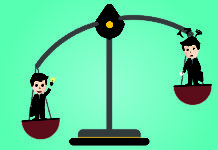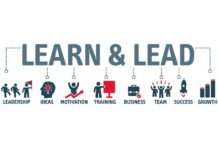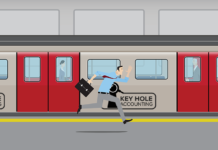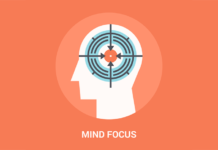Like most things in life, every profession has its positives and negatives. Usually, it’s not the job itself which is say, ‘good’ or ‘bad’, but whether it’s the right fit for you as an individual.
Some employees will gladly work long hours – a journalist for example, as ‘news never sleeps’, but others may count down the minutes until home time. A common discussion point amongst the majority of workers however, is that of work-life balance.
It’s fair to say that all of us, at one point or another, have questioned whether we’re getting enough time to ourselves, outside of work. We are all different, and some of us may desire more time than others, but either way, it’s definitely a subject worth taking a few moments to think about for your own peace of mind.
In fact, work-life balance was flagged in a recent survey on wellbeing as a concern for accountancy students. Almost two in five (38%) of the 450 students surveyed felt that their work-life balance was unhealthy. Interestingly though, the same survey revealed that despite working long hours, 88% of the students felt they were able to manage deadlines.
The Chartered Accountants Wellbeing Society (CABA), who conducted the survey, have said that “striking a work-life balance is hard, but working too much is a vicious cycle – not getting enough sleep or exercise will be to the detriment of their (the students) workplace activity.”
Most of us know that getting a good night’s sleep is important for our health and well-being – the fact we spend a third of our lives asleep says enough by itself, but too few of us actually achieve the our ‘sleep goals’. This is usually down to many factors such as getting distracted, not being able to ‘switch off’, and other matters such as too much caffeine, or electronic devices interfering with our natural sleep/wake cycle.
According to research from the National Sleep Foundation which took over two years to complete, the ideal amount of hours sleep for both young adults and adults is seven to nine, and between seven to eight for older adults. This is looking at individuals with healthy, ‘normal sleep’.
Of course, sleep needs vary from person to person and are impacted by lifestyle and health, but we can all agree that without enough, tiredness will impact our day to day lives.
CABA recommend that accountancy students or those aspiring to be accountants ensure they get enough rest, otherwise they risk issues like burnout occurring later on.
We recommend taking a step back and looking at the bigger picture. Try to identify what lifestyle factors are affecting the quality of your sleep. A handy tip is to write down how you spend the hours in your week – that could be working, sleeping, on social activities etc. Once you’ve had a look at your findings, you’ll be able to weigh up the results and work out whether you have a healthy work-life balance.
Work-life balance may be a broad topic, but we hope we’ve inspired you to start counting those all-important sheep. After all, a well-slept person is a happy one.


















